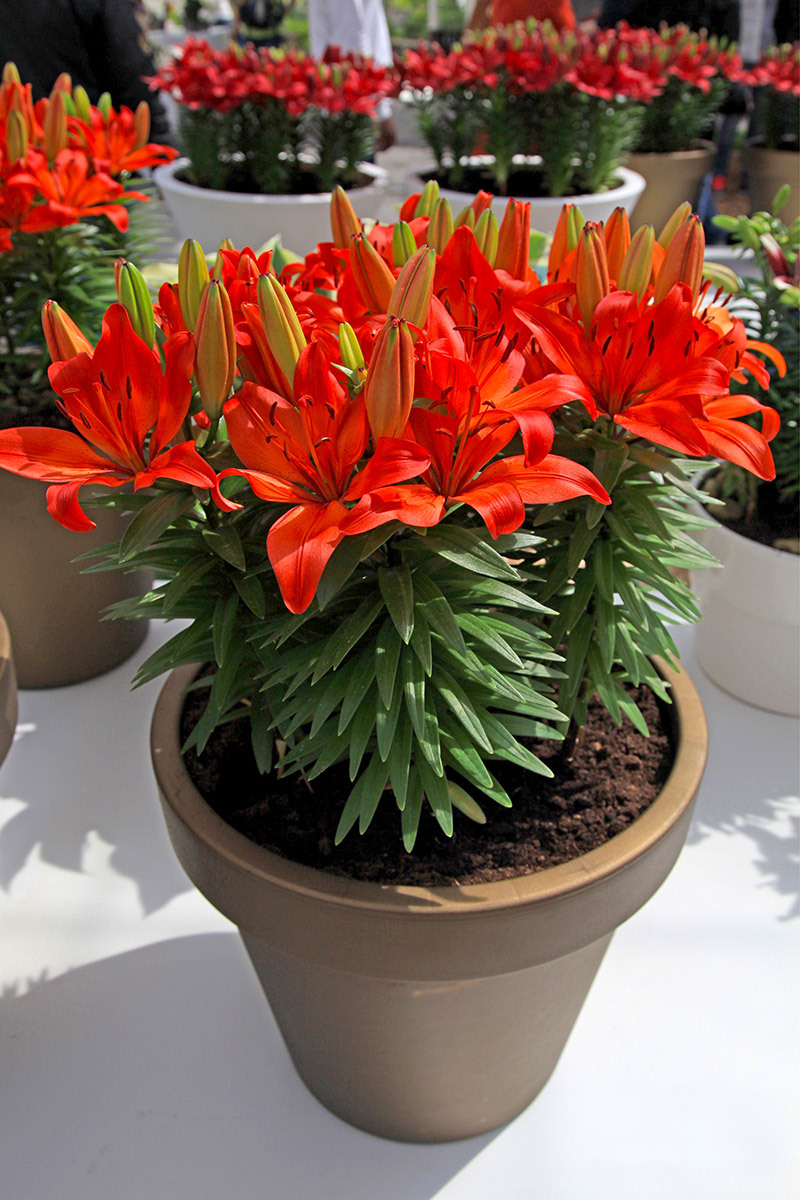Master the Craft of Poinsettia Preservation
Posted on 01/07/2025
Master the Craft of Poinsettia Preservation: Expert Tips for Lasting Blooms
Looking to keep your festive poinsettias vibrant far beyond the holiday season? Mastering the craft of poinsettia preservation unlocks the secret to enjoying these radiant plants for months--sometimes even years. This comprehensive guide covers the art and science of preserving poinsettias, from essential care tips and troubleshooting to advanced preservation techniques.

Understanding Poinsettias: The Foundation of Preservation
Before diving into effective poinsettia preservation, let's unravel what makes these plants special:
- Native Habitat: Poinsettias (Euphorbia pulcherrima) hail from Mexico and Central America, favoring warm, humid climates.
- Blooming Season: Their iconic red (and occasionally white, pink, or mottled) bracts reach peak vibrancy during winter, making them a holiday staple.
- Bracts vs. Flowers: The colored "petals" are actually modified leaves, with the true flowers being the small, yellow clusters at the center.
Essential Care for Prolonging Poinsettia Life
1. Provide the Right Light
After the holidays, many struggle to keep their poinsettia's color and vigor. The key to poinsettia preservation starts with light:
- Bright, Indirect Sunlight: Place your plant near a sunny window, preferably one facing east or south, but avoid direct, scorching sunlight.
- Rotate Regularly: To ensure even growth and avoid leaning, turn the pot every few days.
2. Master Moisture Management
Watering errors are the fast track to wilting or root rot. Here's how to get it right:
- Let Soil Dry Slightly: Allow the top inch of soil to dry out between waterings.
- Drain Well: Never let the pot sit in standing water. Ensure your container has drainage holes.
- Check Regularly: Poinsettias hate both soggy and bone-dry soil--monitor moisture levels at least twice a week.
3. Favorable Temperature and Humidity
Maintaining the right environment is essential for lasting poinsettia preservation:
- Temperature Range: Ideal temperatures are between 60-70?F (15-21?C) during the day, dipping no lower than 50?F (10?C) at night.
- Protect from Drafts: Keep away from cold windows, doors, or forced-air heating vents.
- Humidity Boost: Poinsettias love moderate humidity; mist lightly or use a shallow tray filled with pebbles and water under the pot.
4. Fertilizing for Longevity
After bloom, your plant needs feeding for sustained growth:
- Wait Until After Bloom: Begin fertilizing only once active growth resumes, usually late January or February.
- Balanced Formula: Use a half-strength, balanced houseplant fertilizer (10-10-10 or 20-20-20) every 3-4 weeks.
Advanced Techniques: Long-Term Poinsettia Preservation
Year-Round Poinsettia Care Guide
To preserve poinsettias beyond a single season, savvy gardeners follow a yearly care cycle:
- January-March: Maintain regular watering and bright, indirect light. Remove faded bracts as needed.
- April: When bracts fade, cut stems back to about 6 inches above soil. Gradually reduce watering to let the plant rest.
- May: Repot into fresh soil, resume regular watering, and place outdoors in light shade once frost danger passes.
- June-August: Encourage bushier growth by pinching back new shoots every 4-6 weeks.
- September: Bring the plant indoors before evening temperatures drop below 55?F (13?C).
- October-November: For reblooming, provide 14-16 hours of complete darkness nightly (see "Forcing Color" below).
Forcing Poinsettias to Rebloom
The art of poinsettia reblooming is a pinnacle of preservation:
- Starting in Early October: Each evening, cover the plant or move it to a dark closet for at least 14 hours of total darkness. Even brief exposure to light inhibits bract coloring.
- Daylight Exposure: Return to bright, indirect light for 8-10 hours during the day.
- Consistency Matters: Continue this light/dark regimen daily for 8-10 weeks, until colored bracts reappear.
Propagation for Perpetual Preservation
If you want to preserve your poinsettia legacy, propagate your favorite specimens:
- Timing: Take 3-4 inch stem cuttings in late spring or early summer.
- Rooting Medium: Place cuttings in moist, well-draining potting mix, and cover loosely with plastic for humidity.
- Root Development: Roots should form in 4-6 weeks; transplant into individual pots once well established.
Solving Common Poinsettia Preservation Problems
Leaf Drop
Concerned about leaf loss? Common causes include:
- Sudden temperature changes
- Cold drafts
- Overwatering or underwatering
- Insufficient light
Address the root cause promptly for effective poinsettia preservation.
Pests and Diseases
- Whiteflies, mealybugs, and spider mites are the usual offenders. Remove manually and treat with insecticidal soap as necessary.
- Fungal spots or root rot indicate overwatering--improve drainage and reduce frequency.
Pale or Curled Leaves
Typically a sign of low humidity or exposure to hot, dry air. Increase humidity and reposition away from vents.
Creative Poinsettia Displays that Last
Preserved Cuts for Decoration
- Cut bracts last up to two weeks in water. To prevent sap loss, dip cut ends in hot water for a few seconds before arranging.
- For dried poinsettia preservation, press bracts between parchment paper and heavy books for 10-14 days, then frame for lasting decor.
DIY Glycerin Preservation
Soak bracts in a mixture of water and glycerin (two parts water to one part glycerin) for several days to maintain flexibility and color.
Holiday Centerpieces and Beyond
- Combine preserved bracts with evergreens, berries, and ornaments for year-round arrangements.
- Use as accents in homemade wreaths or floral artwork.
Poinsettia Myths and Facts for True Preservationists
-
Myth: Poinsettias are deadly toxic to pets.
Fact: While mildly irritating, they are not deadly. Ingestion can cause mild upset, but serious poisoning is rare. -
Myth: Poinsettias only survive one holiday season.
Fact: With proper preservation, these plants can thrive and rebloom year after year. -
Myth: Only red poinsettias can be preserved.
Fact: All colors--including white, marbled, or pink--can be preserved with the same care practices.

Poinsettia Preservation FAQs
-
How long can a poinsettia be preserved?
With proper care, poinsettias can retain color for four to six months and survive as green houseplants for years. -
Can you plant a preserved poinsettia outdoors?
In zones 9-11, poinsettias can be grown as perennials outside. In colder climates, treat as houseplants or bring them in for winter. -
Will cut poinsettias last as cut flowers?
Yes--with sap-sealing and fresh water changes, cut bracts can last up to two weeks.
Conclusion: Become a Poinsettia Preservation Pro
Mastering the craft of poinsettia preservation means transforming your holiday symbol into a year-round living treasure. With careful light, watering, and climate management, combined with advanced reblooming and creative preservation methods, your poinsettia can outlast seasons and trends. Whether you're a seasoned plant parent or a festive novice, these expert strategies ensure lasting beauty, vibrant color, and year-after-year holiday cheer.
Ready to master the craft? Start today, and let your poinsettia shine as a testament to skilled care and horticultural artistry. For more guides on holiday plant preservation and care, explore our seasonal gardening tips.
Latest Posts
Get to know the deep meanings of every month's birth flower
Blooming Identity: The Flower That Best Defines Your Nature
Master the Craft of Poinsettia Preservation
Create a Floral Paradise at Home: Orchid Care Secrets Revealed





